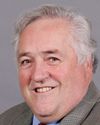Mr. Speaker, Hamilton and the surrounding area has been selected by a national board of private sector equity capital specialists to run a Canada community investment program demonstration project.
The CCIP bid, which was spearheaded by Renaissance Economic Initiatives, links eight economically interdependent communities which include the cities of Brantford and Burlington, the regional municipalities of Haldimand-Norfolk and Hamilton-Wentworth, Six Nations of the Grand River, the towns of Grimsby and Lincoln and the township of West Lincoln.
By strengthening access to equity capital for small business in what is now referred as the inter-lake economic corridor, we are creating more opportunities for jobs and growth.
I would like to congratulate Renaissance Economic Initiatives, my caucus colleagues and all the community partners not only for their dedication and hard work in making the CCIP bid successful but also for the model which they have established for future inter-regional partnerships.










